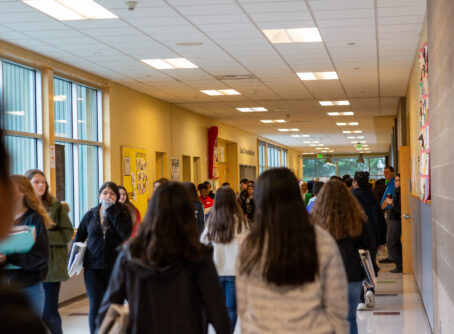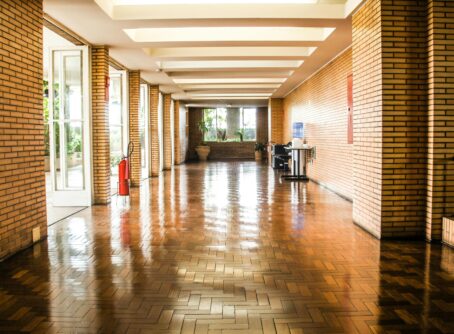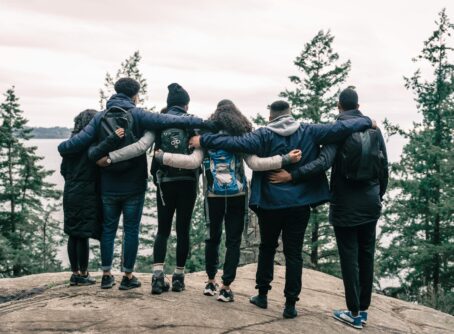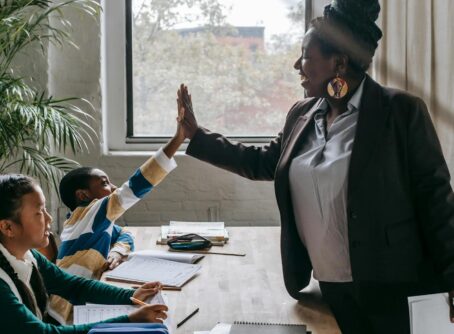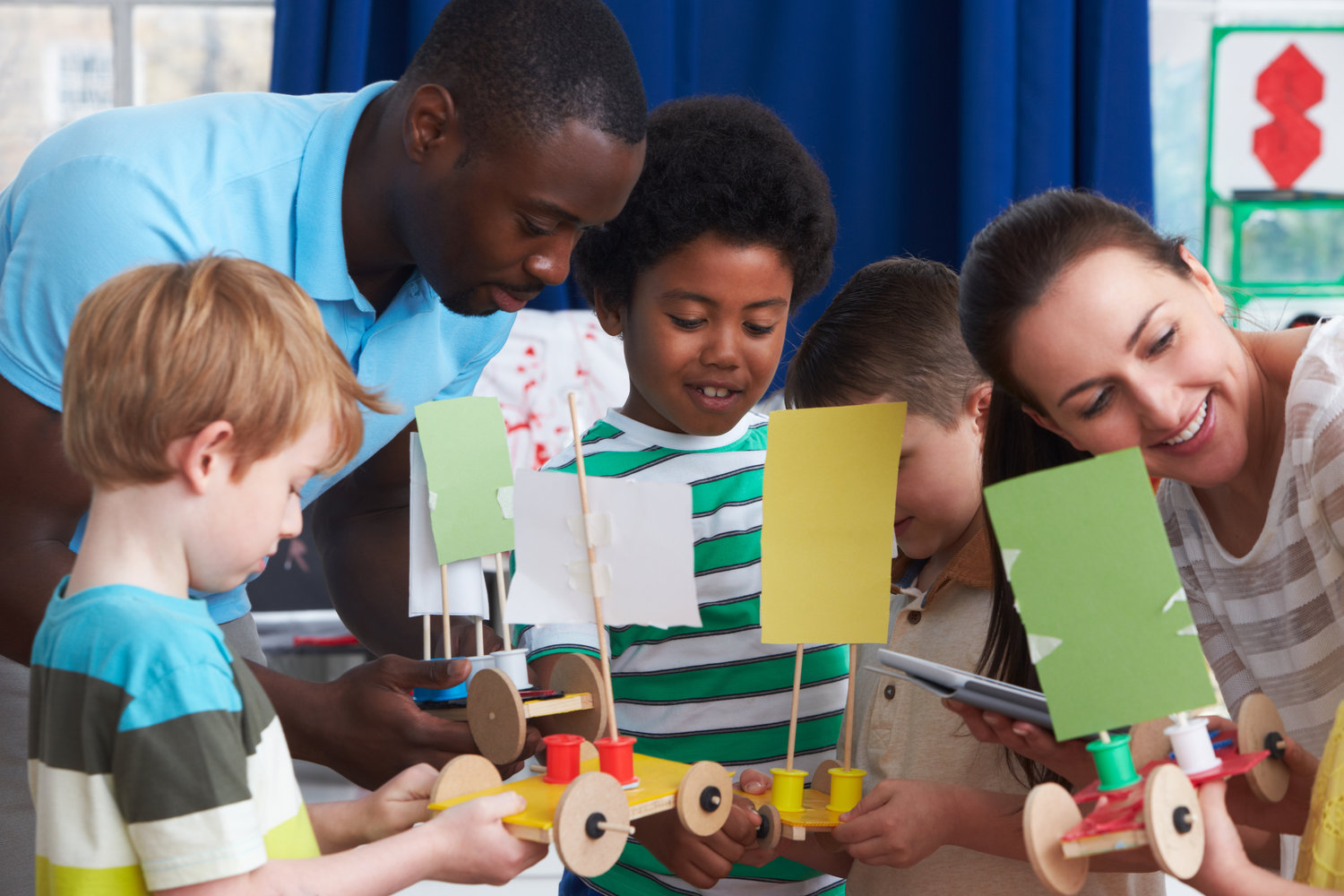
This article is part of Shared Justice’s Second Chance Month series running throughout April and May. This series will explore barriers that returning citizens face upon release from prison, highlight the ways in which government and civil society institutions can respond, and invite our readers to participate in efforts to ensure that returning citizens have the ability to flourish upon reentering society.
CB: What led you to your work with Amachi Pittsburgh? Why is it important to you?
AH: I always say that Amachi Pittsburgh found me. About 15 years ago, I became a founding member of the Pittsburgh Darfur Emergency Coalition, advocating for the end of genocide in Sudan. Being a champion for such a vulnerable population and a voice for justice gave me energy. I had found my purpose in life. In my quest to learn more about humanitarianism and the nonprofit sector, I reached out my sister-in-law who was the executive director of Amachi Pittsburgh at the time. It just so happened that she was looking for some extra help to meet their project goals so she invited me to join the team on a two-month contract. That was in 2005 and the rest is history. Once I learned about mass incarceration and the innocent children left behind, I was all in. The similarities between both crises were striking but this issue was right in my back yard. Particularly disturbing are the egregious racial disparities and institutionalized racism that perpetuates the vulnerability of African-Americans to intergenerational poverty and incarceration. It appears that, without shame, the US maintains a different “justice” system for people of color and those who are economically disadvantaged.
How does the incarceration of a parent (especially a single parent) impact a child? What does it do to the family unit, and what are the short and long-term impacts of parental incarceration?
Parental incarceration can be absolutely devastating to children and families in every regard—emotionally, mentally, financially, socially, and academically. It’s as if they’re also serving time. While there are many variables that influence the extent to which children suffer, it is clear that the pain runs deep and the effects are long lasting. In addition to our experience with families, data documents a greater incidence of mental and behavioral health issues, depression and anxiety, difficulty focusing in school, early exposure to trauma and its effects difficulty meeting basic needs, increased financial hardship, attachment issues, an overwhelming sense of loss and abandonment, shifting home environments, shame and societal stigma—and the list goes on. Left unaddressed, the challenges young people face because of parental incarceration are seemingly insurmountable, especially when coupled with harmful policies and practices due to the political and economic systems they find themselves in. However, with appropriate support, trauma-informed care and opportunities, these children are among the most resilient, tenacious and powerful young people.
“With appropriate support, trauma-informed care and opportunities, these children are among the most resilient, tenacious and powerful young people
What makes Amachi Pittsburgh’s program model unique and successful?
Amachi Pittsburgh has developed a unique, integrated program model that delivers not only direct support to children, as well as families, but also empowers the very individuals we serve to emerge as agents of change. We adopted the award-winning Amachi model but also incorporate additional evidence-based programs to support parents/caregivers (custodial and incarcerated) and provide specialized advocacy and leadership training. Key to our success is the recognition that the power to change one’s life rests within the individual, so our role is to serve as facilitators and cheerleaders along the road to transformation. We are not saving anyone’s life—nor is “saving” what anyone needs. We are helping our families leverage their innate strengths, their capacity to solve problems they encounter, and opportunities to achieve goals. We honor our families as experts with the lived experience. Thus, we affirm the value and power in their voices and compelling stories by creating platforms for them to amplify their voices in effectuating social change. Through trauma-informed care and evidence-based programming (mentoring, family strengthening and reunification, and advocacy/leadership development), our dedicated staff and volunteers are helping youth and families to overcome challenges and thrive.
How have you seen these services improve outcomes for youth and their families? Can you share a story or example that embodies the intended impact of Amachi Pittsburgh?
Absolutely. We partner with a local university for program evaluation and have consistently been able to demonstrate the positive impact of our youth and family strengthening programming. Our youth learn to routinely exercise good decision making and conflict resolution skills; to thrive socially and academically; to see themselves and their futures in a positive light; and 92 percent avoid any involvement in the justice system.
Our Second Chance Month series has highlighted some of the many barriers to a successful reentry that returning citizens face. What work – whether through services or advocacy – is Amachi Pittsburgh doing to address the barriers to successful reentry that many parents face upon release from prison?
Amachi Pittsburgh, by design, is collaborative in nature so we work with a host of partners to help returning citizens successfully rebuild their lives. We focus on helping our families build/rebuild strong family ties and healthy family functioning through the following:
- Facilitate the family reunification process, which includes teaching an evidence-based curriculum for incarcerated parents just prior to release.
- Administer an evidence-based family strengthening curriculum for youth and custodial parents/caregivers.
- Train and equip our constituents to use their powerful voices and compelling stories to educate policy makers about the impacts of harmful legislation, policies and practices, and to offer viable solutions.
- Lead and/or participate in campaigns to secure resources for families and remove barriers. For example, we developed the state-wide Driven to Work Campaign with key partners, which resulted in driver’s license reform (elimination of automatic suspensions for non-violent drug-related crimes).
How can Christian 20- and 30-somethings support children and families impacted by incarceration?
Mentoring offers a very concrete, direct way to show children and families love and support but, honestly, in light of decades of mass incarceration and such widespread deleterious effects on families and communities, we really need the power of collective action to change the systems that perpetuate these problems. There are a number of groups advocating for change. Plugging into these important efforts would be powerful. There is strength in numbers!
Anna E. Hollis is the Executive Director of Amachi Pittsburgh, a unique partnership of secular and faith-based organizations working together to support children and families of the incarcerated. A founding member of the Pittsburgh Darfur Emergency Coalition, Anna serves on the board of The Mentoring Partnership of Southwestern Pennsylvania and the Community Advisory Committee of the YWCA Center for Race and Gender Equity. She has served as Treasurer of the NAACP-Pittsburgh Chapter and as a member of the National Advisory Board of the Mentoring Children of Prisoners Support Center. As a mother of three children, Anna passionately believes that every child has inherent value despite family circumstances. It is her hope and expectation that the God-given potential and purpose of all children are recognized, protected and nurtured by caring adults.
Courtney Beals is the Assistant Editor of Shared Justice, a program of the Center for Public Justice.

